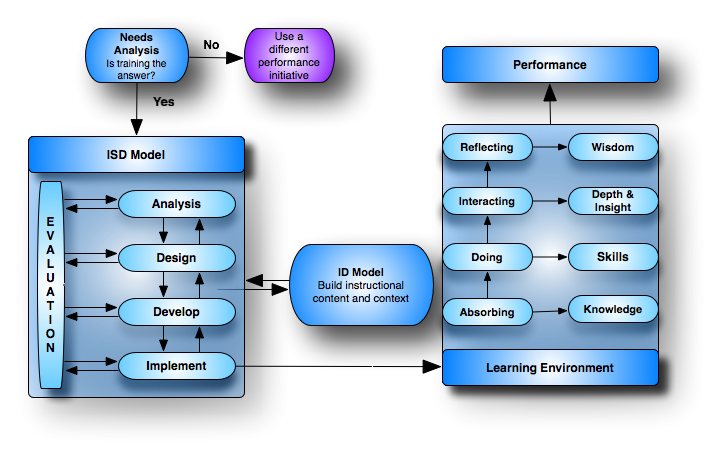T-Group
In 1947, the National Training Laboratories Institute, led by Kurt Lewin, starts up in the Bethel ME. They pioneer the use of T-groups (sometimes called Sensitivity or Laboratory Training), in which the learners use feedback, problem solving, and role play to gain insights into themselves, others, and groups. The goal is to change the standards, attitudes and behavior of individuals.
A typical method may include:
- Unfreezing of the participants' habitual responses to situations by having them express their desires to explore new ways of behaving. The facilitator normally provides little or no structure or task agendas.
- The participants experiment with their new behaviors that are normally chosen on their own.
- Their new behavior is then reinforced by positive feedback. Participants assess if their new behavior is closer to what they intended. The facilitator ensures that the environment is supportive and develops trust among the participants.
This type of training is controversial as the behaviors it encourages are often self-disclosure and openness, which many people believe an organization ultimately punishes. Also, a lot of the sensitivity training taking place uses excessive activities. The feedback used in this type of training can be highly personal, hence it must be given by highly trained facilitators (trainers).



